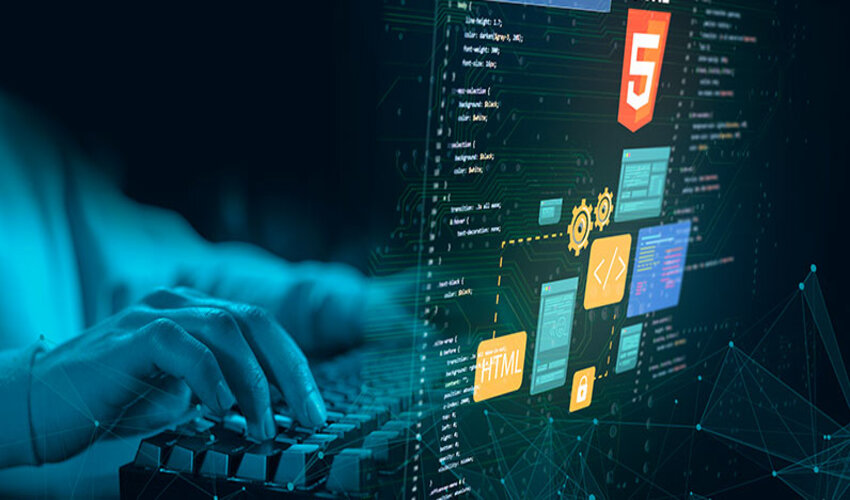
In the rapidly evolving landscape of technology, Artificial Intelligence (AI) has emerged as a ground breaking force reshaping various industries. Among these, the impact of AI on software development has been particularly profound. AI’s ability to augment human capabilities, streamline processes, and enhance efficiency has led to a paradigm shift in the way software is created, tested, and deployed. This blog explores the evolution of AI in software development and its far-reaching implications for the industry.
The Evolution of AI in Software Development
1.1 Early Implementations
The roots of AI in software development can be traced back to the early days of computing. In the 1950s, researchers began exploring the possibilities of creating intelligent machines that could mimic human intelligence. These early AI systems, though rudimentary, laid the groundwork for future advancements.
1.2 Rule-Based Systems
In the 1970s and 1980s, rule-based systems became prevalent in software development. These systems employed a series of if-then rules to make decisions and solve problems. Although they were effective in certain domains, their rigid nature limited their adaptability and complexity.
1.3 Machine Learning and Neural Networks
The breakthrough in AI came with the development of machine learning algorithms and neural networks. In the 1990s, software developers began incorporating machine learning models to enable programs to learn from data and improve their performance over time. This marked a significant leap in AI’s potential in software development, as it allowed for more flexible and dynamic systems.
1.4 Deep Learning and Big Data
In the last decade, deep learning has revolutionized AI. Powered by large-scale datasets and powerful computational resources, deep learning models have achieved remarkable success in natural language processing, image recognition, and other complex tasks. Software developers now leverage deep learning algorithms to create more sophisticated applications that can understand and interact with users in a more human-like manner.
Impact of AI in Software Development
2.1 Automation of Repetitive Tasks
AI has significantly impacted software development by automating mundane and repetitive tasks. Tasks such as code generation, bug fixing, and software testing can now be efficiently handled by AI-powered tools. This automation not only saves time but also reduces the likelihood of human errors, leading to more robust and reliable software products.
2.2 Improved Code Quality
AI-driven code analysis tools have proven invaluable in improving code quality. These tools can detect potential bugs, security vulnerabilities, and coding inefficiencies. By identifying and addressing issues early in the development process, developers can create more maintainable and scalable software.
2.3 Accelerated Development Process
With AI, software development cycles have become faster and more efficient. AI-powered project management tools can optimize workflows, allocate resources, and predict development timelines accurately. This expedites the entire development process, allowing companies to deliver products to market swiftly.
2.4 Personalization and User Experience
AI has revolutionized user experience by enabling personalization in software applications. Machine learning algorithms analyze user behavior and preferences to deliver tailored content and recommendations. This level of personalization enhances user satisfaction and engagement, leading to increased customer loyalty and retention.
2.5 Continuous Integration and Deployment (CI/CD)
AI has played a pivotal role in the adoption of CI/CD practices in software development. AI-powered continuous integration tools can automatically build, test, and deploy code changes, ensuring a seamless and error-free deployment process. This leads to more frequent software releases and quicker response to user feedback.
2.6 Natural Language Processing (NLP)
Natural Language Processing (NLP) has opened up new possibilities in software development. AI-powered NLP algorithms can analyze, interpret, and respond to human language, enabling developers to build chatbots, virtual assistants, and other conversational interfaces. This not only enhances user interaction but also drives efficiency in customer support and service.
Ethical Considerations and Challenges
3.1 Bias and Fairness
One of the most pressing concerns surrounding AI in software development is the potential for bias. These biases can be perpetuated in the software, leading to discriminatory outcomes. To address this, developers must adopt rigorous testing and validation processes to ensure fairness and inclusivity.
3.2 Data Privacy and Security
AI-driven software often relies on vast amounts of data to function effectively. Ensuring data privacy and security becomes crucial in such scenarios. Developers must implement robust data protection measures to safeguard sensitive information and prevent potential breaches.
3.3 Lack of Transparency
Complex AI algorithms can be difficult to interpret and explain, leading to a lack of transparency. In critical applications like healthcare or finance, this lack of transparency can hinder trust and acceptance. It is essential for developers to focus on building explainable AI systems to maintain user confidence.
3.4 Job Disruption
AI’s ability to automate tasks also raises concerns about job displacement in the software development industry. While AI can streamline processes, it is crucial to retrain and upskill the workforce to adapt to the changing landscape and find new roles that complement AI technology.
Conclusion
Artificial Intelligence has come a long way in software development, reshaping the industry through automation, improved code quality, accelerated development cycles, and enhanced user experiences. The integration of AI has unlocked new possibilities and transformed the way developers approach challenges. However, developers must remain vigilant about ethical considerations and address challenges related to bias, transparency, data privacy, and job displacement. As AI continues to evolve, it is vital to strike a balance between leveraging its potential while ensuring responsible and ethical AI implementation in software development.
Author Bio:
Sachin Agrawal is an Enterprise Architect and heads up Business & Technology at Tarika Technologies. He carries expertise and a flair for writing on Management Consulting, Software & Analytics and Digital Media. Apart from distilling his technical ideas into creating innovative solutions, he is a practitioner of Haidong Gumdo and at his leisure, taps the Cajon and strums his Guitar! You can connect with him on LinkedIn.
